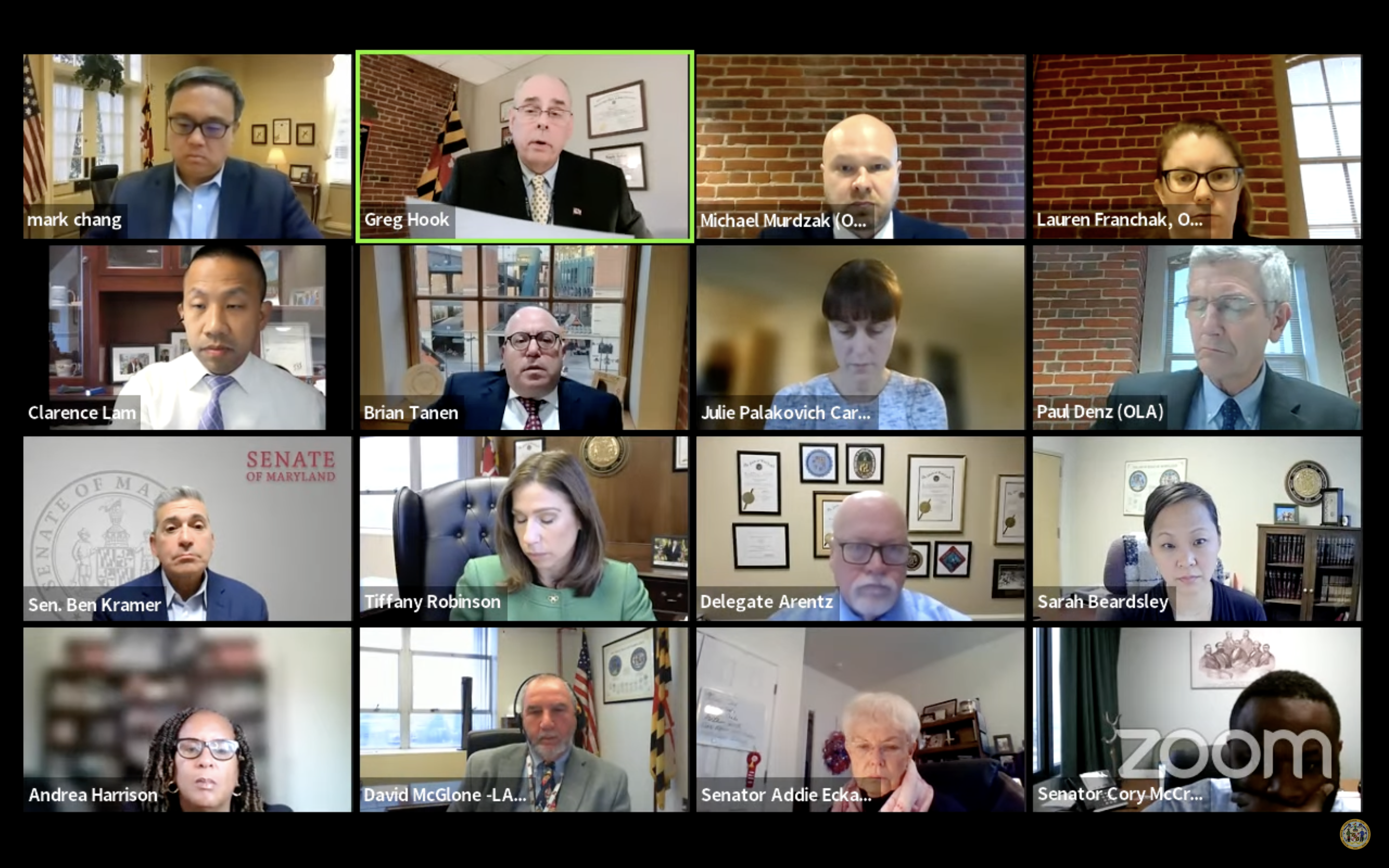Labor Department’s resistance to political pressure helped stem fraud, secretary says

When thousands of Marylanders were thrown out of work at the height on the COVID-19 pandemic, the state Department of Labor found itself under siege, trying to process a flood of unemployment insurance claims that arose seemingly overnight.
The agency’s workforce and its benefits system struggled, not least because department personnel suddenly found themselves working from home. They also found themselves coping with a cascading set of changes in federal eligibility guidelines, each requiring software updates and staff training, as well as an onslaught in fraudulent claims from around the globe.
The state paid out billions of dollars in benefits, but many people waited weeks — and in some cases, months — for money to arrive, a situation that caused significant hardship. The delays sparked criticism from the public, state legislators and Maryland’s congressional delegation.
At a legislative hearing on Tuesday, Labor Secretary Tiffany Robinson offered a robust defense of her agency and its contractors. And she said her decision to resist “pressure” to pay all claims as they were submitted saved the state billions of dollars.
“Without a doubt, the easier, politically convenient thing to do would have been to pay everyone, as many demanded of me,” she declared. “But we chose another route, and that was to help honest and deserving claimants as quickly as was humanly possible, while also fighting and exposing what really turned out to be the largest theft in American history.”
Maryland processed 136,000 benefits claims in fiscal year 2019. As businesses shed workers in response to declining economic activity, the number jumped to 1.5 million in FY 2021 and 1.9 million in FY 2022.
Although agency personnel and the company behind Maryland’s “BEACON” claims processing platform worked nights and weekends to update and expand the system and handle individual claims disputes, newly-jobless Marylanders struggled to meet rent and mortgage obligations and feed their families.
By late spring 2020, state lawmakers were inundated with calls from constituents — many from people claiming to be on the verge of homelessness. Lawmakers convened a nine-hour public hearing that spring where nearly 200 people shared their stories, many through tears.
Jobless workers said they were spending all day on the phone trying to reach a claims specialist. Others said they encountered continual “error” messages on the agency’s benefits portal, a balky app, and were promised letters that never arrived.
Soon after the hearing, some lawmakers called on Robinson to follow the lead of Vermont and a handful of other states that prioritized speedy payouts and a clawback of funds that were distributed to people were not eligible. A year later there were calls for the secretary to be replaced.
But Robinson said on Tuesday that subsequent investigations by national news organizations validated the Hogan administration’s decision to aggressively fight the “staggering degree to which our nation’s federal unemployment insurance system was attacked and plundered by sophisticated cyber-criminals.”
She told lawmakers that international “fraudsters” continue to bombard states’ unemployment insurance systems, hoping to get benefits. Some are “aligned with the Chinese government,” she said.
Robinson said her willingness to buck “enormous political pressure to pay everyone” saved the state “tens of billions of dollars” in fraudulent claims.
But in an interview, Sen. Clarence Lam (D-Howard), the Senate chair of the Joint Audit and Evaluation Committee, called her claims overblown.
“I honestly think that’s a little far-fetched,” he said. “I don’t think it would have been tens of billions of dollars.”
Lam said the pressures Maryland experienced were no different than those faced by other states. “Did [other states] waste tens of billions of dollars? I doubt it,” he said. “Of course there was fraud, and it was significant, but I think they’re also over-emphasizing it in order to mask some of their own shortcomings.”
He said that a handful of relatively “common sense” steps adopted early-on — such as denying claims submitted using overseas IP addresses and from prisoners, for example — could have resolved many attempts to rip off the system.
Robinson claimed again on Tuesday that the pandemic impacted her agency’s ability to update an antiquated claims processing system. But Lam noted that the upgrade had “go live” dates that preceded the emergence of COVID-19.
The head of the Office of Legislative Audits told the panel Tuesday that its review of some of the Labor Department’s handling of unemployment insurance claims generated an “unsatisfactory” rating, triggering expedited follow-on audits in the months to come.




 Creative Commons Attribution
Creative Commons Attribution